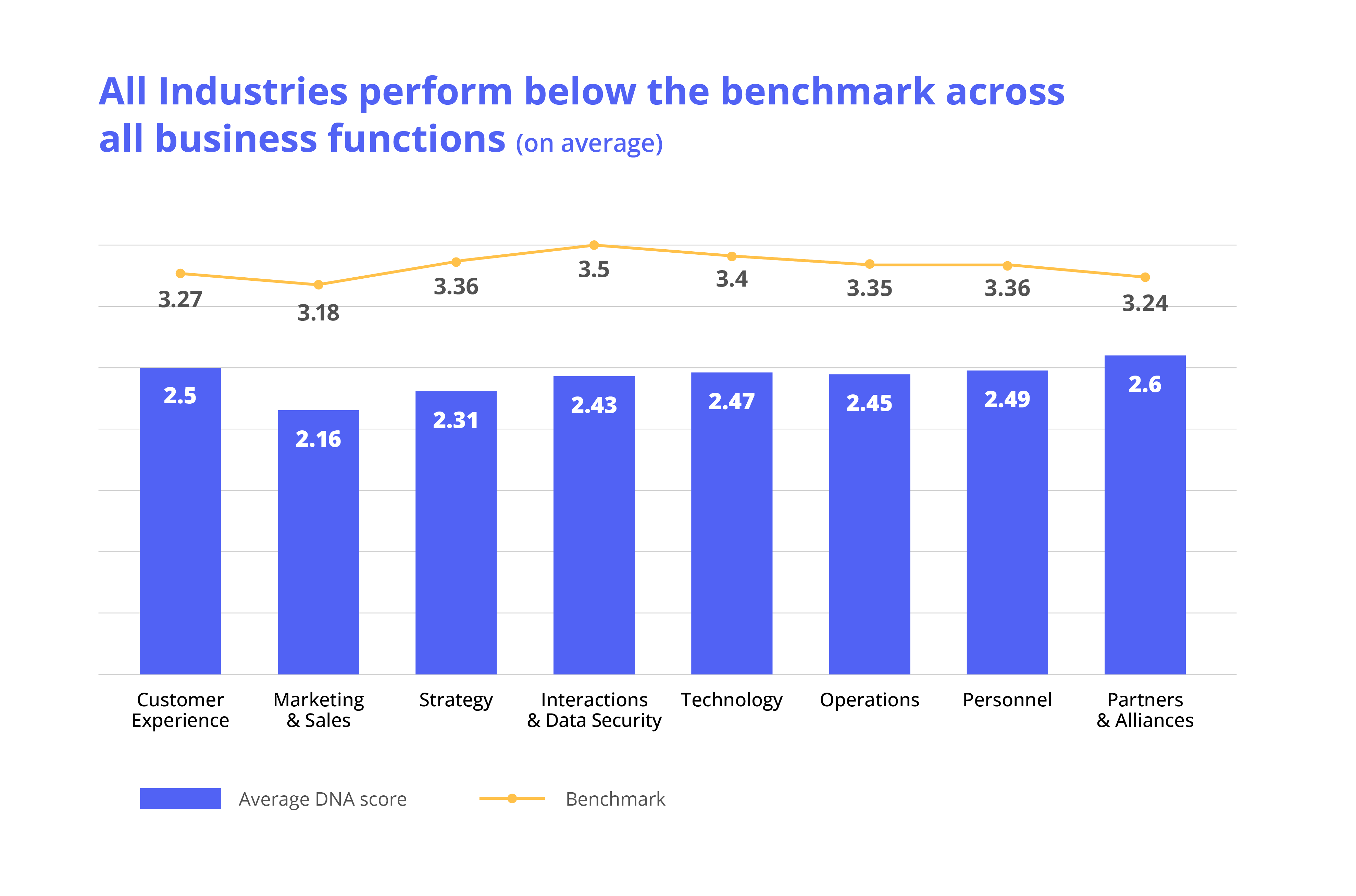Technology has the potential to give Canadian SMEs a leg-up, but, according to the Board’s scale-up arm, The World Trade Centre Toronto, they aren’t taking advantage.
The World Trade Centre Toronto (WTC-T) is the trade services and business growth division of the Board. Its goal is to deliver best-in-class programs to help businesses build strategies and enhance their trade and growth plans. The Digital Needs Assessment (DNA) offered by the World Trade Centre Toronto was an extensive online evaluation designed to identify the digital capabilities and gaps within participating businesses.
The small business sector has big issues. Across the country, founders and owners are retiring, VC funding continues to dry up, and promising startups are being lured south of the border. Ontario’s entrepreneurs and small and medium-sized enterprises are struggling to remain competitive without access to capital and support. Embracing digital tools and innovation to streamline operations and enhance the customer experience could help these businesses move toward a stronger future but today that’s not the case.
The World Trade Centre Toronto’s Digital Needs Assessment (DNA) Survey found that 42.3% of tech firms in Ontario have not invested in any digital capabilities to address customer needs (customer services, online access, and mobile apps). Although concerning on its own, it is symptomatic of a larger issue between SMEs and technology.

Across the board, our DNA survey showed that Canadian SMEs aren’t keeping up with their global counterparts when it comes to tech investment. This finding matches a survey by the Business Development Bank of Canada showing that in 2021 only 5% of businesses were using digital technologies effectively. Only 60% of small businesses surveyed had a website, and only 34% were analyzing customer data.
The digital adoption gap is even more stark when it comes to the use of AI. As KPMG reported last year, only 35% of Canadian businesses have implemented AI into their operations - compared to over 70% of businesses in the US. But that already low figure plummets when it comes to small businesses. According to TheFutureEconomy.ca, only 5% of Canadian small businesses have implemented AI into their business.
This discrepancy in investment is largely due to the misconception that there aren’t meaningful opportunities to implement AI and other digital tools into small businesses. This belief, coupled with the perceived costs, cybersecurity risks, and perceived vague returns, makes digitization a daunting notion for small businesses with tight cashflows.
However, for entrepreneurs who are willing to go digital, the resulting benefits are clear. RBC found that 69% of surveyed Canadians believe that that technology has made it significantly easier to start a small business and 72% reported that digital technology enables their small business to flourish by reducing the expenses associated with daily operations.
Evidence shows that businesses that invest more in technology, grow faster, are more adaptable, have better access to financing, and are more likely to export. Our SMEs are losing out on these benefits due to the lack of digital literacy among entrepreneurs, and the lack of education is prohibiting entrepreneurs and SME owners from engaging with the many inexpensive, or even free, tools that can help bridge the digital divide.
There are opportunities for the government to step in and ease digital transitions, but as it stands SME’s must make their own path to digitization. Currently, the lack of access to capital and education is stifling the investment in and adoption of digital tools. Unfortunately, instead of meeting the challenge, SMEs are opting away from digital tools and doubling down on their existing processes. Despite the perceived risk, the small business operators are doing themselves a disservice by not following best-in-class practices around digitization and are missing out on growth, efficiency and profits as a result.
Introduced in March 2021, the Digital Needs Assessment (DNA) offered by the World Trade Centre Toronto serves as an extensive online evaluation designed to identify the digital capabilities and gaps within participating businesses. Consisting of 40 questions, this survey delivers a holistic insight into the digital maturity of a business, evaluating it against industry standards and benchmarks. The insights unveiled are drawn from data collected between March 2021 and December 2022, encompassing responses from over 560 companies generating revenue surpassing CAD 50K.
